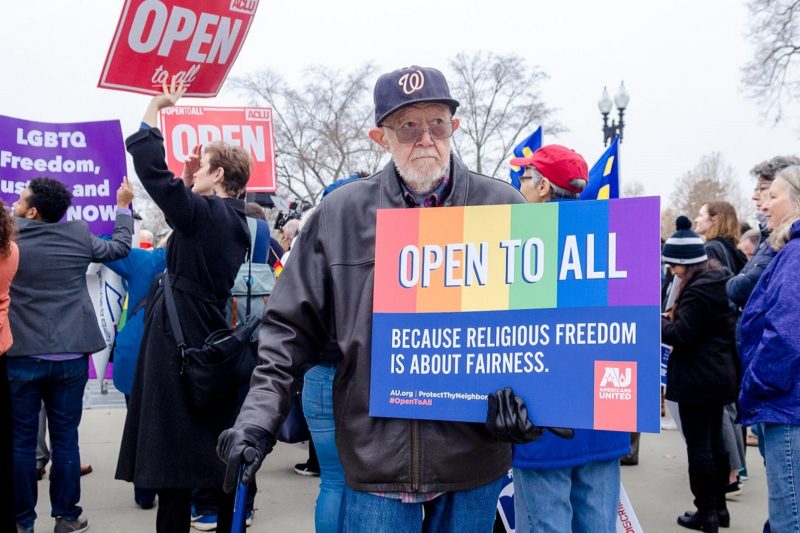SCOTUS Refusal Again Favors Religious Claims… But This Time in Liberals’ Favor
An anti-gay breakaway group has to return a half a billion dollars worth of property to the Episcopal Church.

Earlier this week, the U.S. Supreme Court declined to hear a property dispute that arose when the bishop and a majority of parishes in the Episcopal diocese of South Carolina voted in 2012 to leave their national church, which was largely the result of the denomination’s decision to ordain gay bishops and to bless same-sex marriages. The effect of the Court’s order, which left in place a 2017 decision from the state supreme court, was that the breakaway “Protestant Episcopal Church in the Diocese of South Carolina” must return close to half a billion dollars in properties to the Episcopal Church.
The issue in the case was highly technical, centering on whether a denomination’s internal governance procedures can have the effect of creating a property trust even when the church procedures don’t satisfy the state’s usual requirements for forming a trust.
For context, it’s worth remembering that the Supreme Court grants review in something like 1% of the cases that arrive on its doorstep each year. The justices’ refusal to hear the South Carolina case may mean little more than the fact that not enough of them believe this issue is sufficiently pressing.
But for those inclined to seek a subtext, this case features a similar kind of deference toward religion—or, more specifically, religious groups and their internal workings—that’s characterized a number of recent Supreme Court decisions.
Since 2010, the justices have upheld the right of a church school to fire employees seeking protection under the Americans with Disabilities Act; sustained objections to the Affordable Care Act from religious organizations who felt that submitting a government form to document their opposition to contraceptive coverage involved them too closely in the provision of that coverage; and read the Religious Freedom Restoration Act in favor of family-owned businesses who also sought exemptions from the ACA’s requirements concerning contraception.
Even its most recent decision involving religion, the Masterpiece Cakeshop ruling that the Court handed down the same day it declined to hear the Episcopal Church case, didn’t question the theological justification for the baker’s views and sought to protect him and his business against alleged anti-religious bias on the part of the government.
What these and similar cases have in common is that the Court hasn’t looked too closely into religious organizations’ decision-making processes but rather has deferred to those groups’ own determinations about matters such as conscience, employment, sexual morality—and now property rights. We usually think about this kind of deference as a “conservative” tendency on the part of the justices, likely because prior to 2017, the majority of parties who came forward tended to assert their religious views against government policies they deemed liberal or secularist.
But in the Episcopal Church case, the shoe was on the other foot, with the politically more progressive entity benefiting from the Court’s deference. It’s another reminder that denominations occupy all points in ideological space and that in courts’ treatment of religious claims, what’s sauce for the goose is sauce for the gander.

